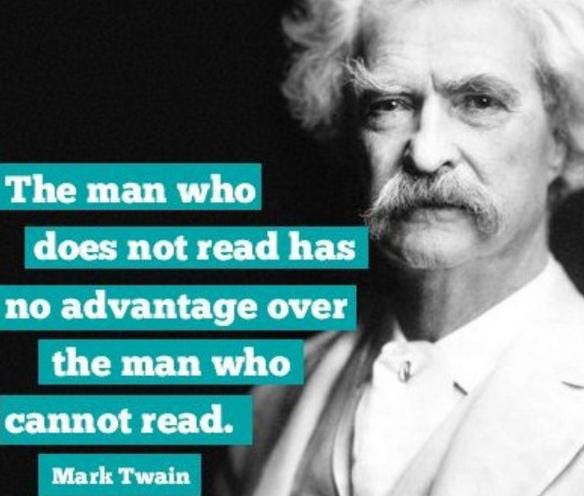Nearly half of adult Canadians struggle with literacy
Lower skill sets in reading and writing have financial and democratic consequences.
CBC Radio (abridged)
Written and produced by Falice Chin
17 January 2021
Nearly half of Canada's population has a big roadblock ahead of them when it comes to post-pandemic economic recovery — and it's not the novel coronavirus but a fundamental set of skills for daily life.
Poor reading, writing and numeracy skills in adults make up a literacy gap in Canada with consequences for both democracy and the economy. Experts say the gap is due in part to an abundance of jobs in the past that do not require the daily use of reading comprehension and information synthesis skills.
Despite relatively high education rates, an analysis of international assessments by Statistics Canada in 2013 showed that more than one in six adult Canadians fell short of passing the most basic set of literacy tests.
Canada's results, which have not substantially changed since the first PIACC, show that many in this country are unable to complete ordinary tasks, such as filling out a job application, reading a news article or sending an email.
About half the adult population fell short of passing a high school level of assessment, by testing the ability to digest lengthier and more complex texts while processing the information accurately.
"Generally speaking, we're below average compared to other OECD (Organization for Economic Co-operation and Development) countries in terms of adult literacy, numeracy skills," said Michael Burt, an economist with the Conference Board of Canada.
The not-for-profit research organization gave Canada a "C" grade in adult literacy back in 2014.
Countries that score higher than Canada in the international skills assessment, which Statistics Canada participates in, include Japan, Australia, Sweden, Finland and Holland.
The literacy gap is not limited to immigrants
Unsurprisingly, new Canadians with a native language other than English or French appear in the lowest literacy category at a higher rate than their Canadian-born counterparts.
In some provinces, immigrants with a very high literacy score actually represented a higher proportion than the Canadian-born population.
However, the lowest-scoring groups also include a significant number of Indigenous people in Canada, as well as English and French speakers born in this country.
Those born and raised in Canada who struggle with language, math and computer proficiency are less visible because they're very good at "faking it."
"They tend to hide this fact from everyone because of the fear of being called names," said Monica Das, executive director of Project Adult Literacy Society (PALS) in Edmonton.
Skills needed in a changing, automated economy
For years, Canada had an abundance of high-paying jobs that didn't require high levels of literacy, such as natural resource-based work, said the Conference Board of Canada's Burt.
At the height of the oil boom, Alberta had a higher high school dropout rate than several other provinces. But the portion of the population with less education now has fewer places to go as changes to the economy accelerate, Burt said.
"The oil and gas sector is not the growth driver for the economy as it was five years ago," the economist said. "The dynamics around that have changed considerably in recent years. On top of that, we're looking at the impacts of digital technologies and automation on the workforce."
As many as one in five jobs in Canada are at risk of being automated, according to the Conference Board of Canada.
Some Canadians filling those "high-risk, low-mobility" jobs most susceptible to automation would have difficulty shifting to work that requires literacy; they tend to come from some of the country's largest industries, such as manufacturing, food services, accommodation, retail and construction.
"These are people whose jobs are at risk to automation, and they have limited ability to move over to other jobs that are at lower risk," Burt explained.
Low literacy affects making informed democratic decisions
Another challenge that comes with low literacy is the difficulty in understanding information needed to make informed decisions, both in daily life and at the ballot box.
Forty-nine per cent of the Canadian population does not hit a level of literacy that can "disregard irrelevant or inappropriate content" to accurately answer questions about something they have read.
On the internet, there's no shortage of bad information to push people into making badly informed decisions. Researchers say those who struggle with reading and writing tend to also perform poorly on the digital front.
http://bit.ly/3cfFCb2
I was surprised to read that half of all Canadian adults cannot read complex texts at a high school level. I didn’t realize that functional illiteracy in this country was that high.
Yet for years now, I have known that we have a problem with condo directors not reading:
• monthly financial statements.
• Reserve Fund Studies.
• Annual fire safety reports.
• the corporation’s declaration, bylaws and rules.
They vote on motions based on whatever the property manager tells them. Failing to read and understand these important documents means that the directors cannot make informed decisions.
The owners either cannot read, or they fail to read, the PICs, the full AGM packages and the corporation’s declaration, bylaws and rules. They do not read the monthly Board of Directors meeting minutes.
All of these acts of omission—failing to read or not being able to read important condo corporation reports and documents—either becaue of functional illitercy or by sloth means that there is a lack of accountability in condo governanace.
H. Marshall





